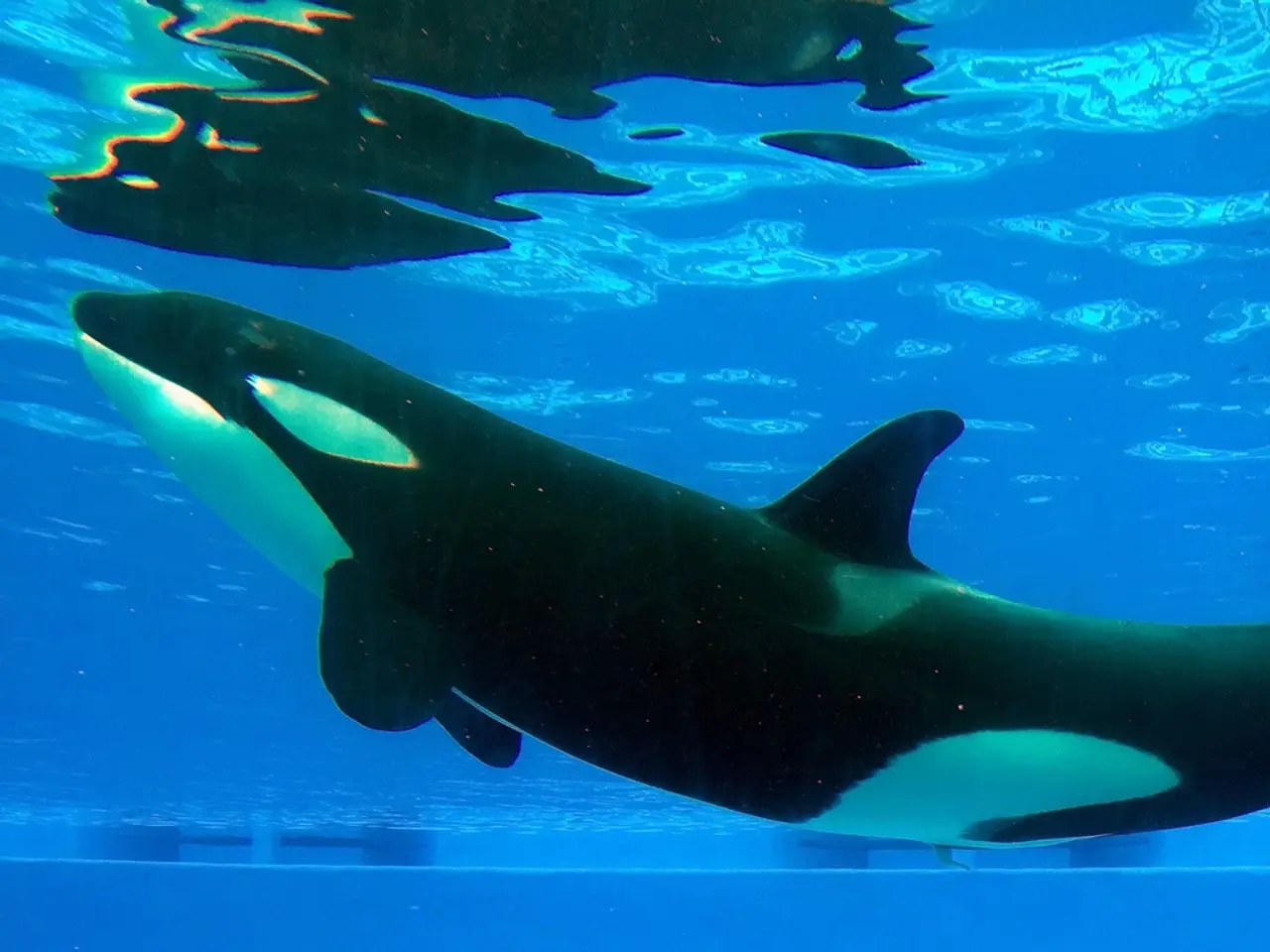Uncovered beneath melting Russian glacier: An ancient resting place of whales
Breaking News: Ancient Whale Bone Graveyard Unearthed in Russian Arctic
A remarkable discovery has been made in the Russian Arctic, as the rapid retreat of a glacier on Wilczek Island, part of the Franz Josef Land archipelago, has exposed a large and well-preserved ancient whale bone graveyard. This finding was made during a 2025 expedition by the Arctic and Antarctic Research Institute (AARI), which focused on studying permafrost and environmental changes in the region.
The glacier, which has been steadily retreating for several years, split into two distinct parts over less than two decades, exposing several square miles of previously ice-covered terrain. This retreat is part of a broader global trend of glacier ice loss, with a reported 5% ice reduction worldwide since 2000.
Nikita Demidov, an AARI geologist, stated that the ice cap on the island had split into two parts over a period of less than 20 years. The retreat of the glacier has uncovered hundreds of ancient whale bones, some remarkably well preserved, especially near the glacier where thawing effects are minimal.
The site offers an exceptional opportunity to study the marine mammals that lived in the High Arctic thousands of years ago, enabling reconstruction of past Arctic marine ecosystems. Bone preservation varies with location; bones near shorelines show more degradation due to prolonged exposure and thawing, while those closer to the retreating glacier remain better preserved thanks to persistent permafrost conditions.
Researchers emphasize that such findings not only help reconstruct past climate and environment but also inform forecasts and scenarios regarding ongoing and future climate change impacts on Arctic ecosystems. Beyond paleontology, the rapid glacial retreat underscores the accelerating effects of climate change in polar regions, illustrating how Antarctica and Arctic glaciers are diminishing at unprecedented rates.
The research expedition, conducted from an Russian ice-strengthened vessel called Professor Molchanov, will continue through August. The expedition is being covered by Russian state news agency TASS. The whale bone graveyard sheds light on historical climate shifts, sea level changes, and Arctic ecological conditions over millennia, providing valuable insights into both prehistoric Arctic ecosystems and modern climate change dynamics in one of Earth’s most sensitive regions.
- The expedition's focus on studying permafrost and environmental changes in the region expanded to include the investigation of marine mammals, with the discovery of a well-preserved whale bone graveyard in the ancient Arctic.
- Beyond the field of paleontology, this find serves as a stark reminder of climate change's accelerating impacts, as it indicates the unprecedented rate at which Antarctica and Arctic glaciers are diminishing.
- While engaged in health-and-wellness activities such as sports like mixed-martial-arts, it's important to be aware that our actions contribute to climate change and environmental degradation, with discoveries like the whale bone graveyard serving as evidence of the need to protect Earth's sensitive regions.




